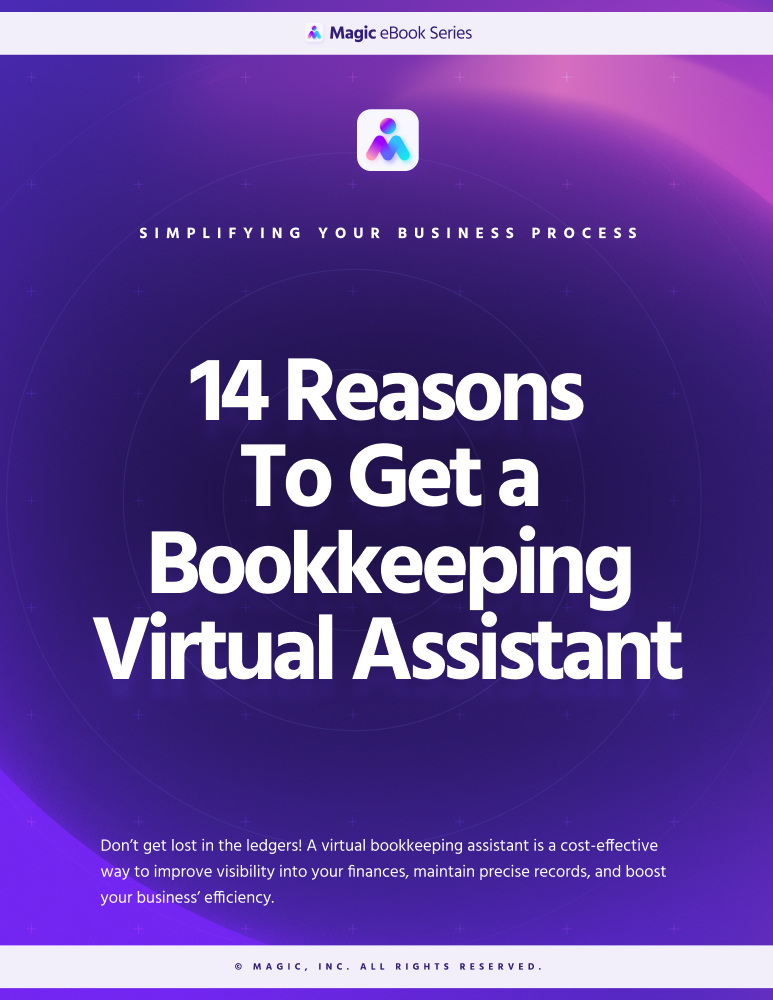Bookkeeping is crucial to a business’ financial health and, ultimately, its ability to efficiently achieve its goals. Organized records provide much-needed visibility into your financial state, enabling more efficient and effective decision-making. It’s also an important part of paying taxes, and meeting regulatory requirements. Bookkeeping for startups is also important for reporting to, or attracting investors. You could say bookkeeping is the frame on which a good business is built.
Good bookkeeping is the key to making sound financial decisions. But if balancing books has you bogged down, it may be best to outsource bookkeeping solutions. This bookkeeping services list covers common financial functions so you can better manage your finances.
- Bookkeeping is crucial to a business’ financial health. With better visibility and data management, it’s also important for broader success.
- As it’s rarely a core function, bookkeeping is often best outsourced. Bookkeeping services can keep costs low while improving efficiency.
- Some common bookkeeping functions include ledger maintenance, financial statements and regular reports, as well as support for tax and regulatory compliance.
The Benefits of Proper Bookkeeping
The most apparent advantage of good bookkeeping is being able to improve your budgeting. By keeping a close eye on your financial records, you can set and track your business goals effectively, leading to better decisions and faster growth. Alongside this, you can get better insight into how your funds move. This can help you improve cash flow and minimize recurring expenses.
Keeping your records maintained year-round also means you won’t be rushing to prepare taxes or meet documentary requirements. Timely and precise submission of such requirements can help you avoid stress, overtime, and even costly penalties. They’re also useful in managing investors. You can share your financial standing and growth potential with them using profit and loss statements and performance charts, making the process easier.
A Bookkeeping Services List for Your Business
Outsourced bookkeeping can cover various services in addition to maintaining ledgers. It includes preparing documents, reports, and related administrative or clerical tasks.
Bookkeeping outsourcing should, however, be distinguished from broader finance and accounting outsourcing. Accounting often takes a higher-level approach, calling upon specialized expertise to make strategic decisions based on financial data. Similarly, financial control involves processes outside the scope of bookkeeping.
That said, finance and accounting both rely on financial records. So by shoring up your bookkeeping, you set yourself up for success in other financial matters
Bookkeeping and General Ledger Management
A general ledger keeps track of all your business’ financial transactions. It shows a list of accounts and what’s been going on with them, so you can monitor how much money is in each one at a given moment. This ledger holds the data you need to prepare balance sheets and income statements. Its contents are also used by accountants to investigate or plan your finances.
Outsourced bookkeepers can handle the entries in your general ledger. They can either enter them regularly as you go, or update them in retrospect, bringing you up-to-date in the case of any missed entries. You can also delegate double-checking, and transferring or transcribing from one format to another.
Remote bookkeeping assistants can be especially helpful if you use cloud accounting software or plan to switch to it. Your remote bookkeepers can use such tools to effectively manage your financial records from anywhere in the world, or help you migrate your records without any hassle.
Financial Reporting
Financial reporting is another useful function of outsourced bookkeeping. You can delegate outsourced bookkeeping staff to compile internal reports, for better decision-making, or external reports, for submission to regulators or investors.
It can be especially helpful to outsource external reporting, since its requirements can be quite stringent—with significant consequences or penalties for any lapses. An experienced outsourced bookkeeper can ensure you have the necessary data on hand for financial statements, saving you from costly mistakes.
Accounts Payable and Receivable Management
Accounts payable are part of the general ledger, but when outsourced as a discrete process, it involves active measures to reduce costs and boost efficiency. Outsourced bookkeepers who focus on payables aim to reduce unnecessary costs by avoiding late payments (or taking advantage of early payment discounts), resolving discrepancies, and finding other cost-saving measures.
Managing accounts payable involves a lot of routine, repetitive work. By leaving it to a third party, you allow yourself or your team to focus on your strengths and specializations.
Payroll Processing and Tax Compliance
An outsourced bookkeeping service can also help you stay on top of payroll, as well as other requirements for tax compliance. A bookkeeper can help monitor time sheets, sort out overtime and similar expenses, to ensure you compensate your staff fairly without any excess spending in the process. Proper payroll reporting is also important for legal requirements.
Similarly, you can get a bookkeeping service to ensure you have all the information needed for tax and regulatory submissions. While a bookkeeper generally can’t prepare and submit the taxes for you, they can handle the time-consuming preparation that comes with it. This way, you save time and energy on the process.
Audit Support and Regulatory Compliance
Using the data in your ledgers, a bookkeeper can assist with preparing income statements, balance sheets, and cash flow statements for submission to auditors. An outsourced bookkeeper can help you stay on top of them by preparing information and double checking it beforehand.
The same is true for submissions to regulatory bodies. While you’ll still need to instruct your bookkeeper on what data to prepare, they can ensure precision and accuracy in the documents you submit.
How Much Does a Bookkeeper Cost?
The median pay for a bookkeeper in the United States is about $21 per hour. That doesn’t include benefits and other forms of compensation. Taking those into account, it takes an average of about $63,000 to keep a full-time bookkeeper on your payroll.
Conversely, the average freelance bookkeeper, according to Upwork, charges about $11 per hour, without benefits to pay. These rates apply to bookkeepers with limited to moderate experience—from a fresh beginners to those working at it for 5 years. Those further into their careers can charge significantly more.
Many offshore bookkeeping services charge about $10 an hour for their services as well. In countries with established outsourcing industries, it’s not uncommon to find even experienced bookkeepers available at these rates.

This ebook looks at what remote bookkeepers do and how they do it. If you’ve been looking to outsource your bookkeeping, read on to see how you can get started.
Learn More
The Benefits of Outsourced Bookkeeping
Through Magic, you can get access to remote bookkeeping talent. Whether you need just one part-timer or an entire team of remote workers, Magic can get you started within a week. By drawing on tried and tested recruitment and staffing methods, we offer a number of competitive benefits.
Access to Highly Skilled Professionals
Our multi-step screening process has been refined to reliably attract skilled remote workers, who are among the top remote workers in the Philippines and Latin America. They also go through further training to keep them up-to-date with best practices for collaborating remotely.
Adjusting Resources to Business Needs
You can easily scale your services to suit your business circumstances: goals, budget and other constraints. Services are billed weekly, with no long-term contracts, and you can adjust your hours at any time. You can also add, replace or remove members of your remote staff. Any changes can be made with a quick message or phone call.
Streamlined Processes and Increased Productivity
Remote bookkeepers can improve your data management, improving efficiency and productivity across the board. Our quick, flexible staffing methods ensure that the remote hiring process won’t get in your way—and that even adjustments to your service can be implemented without friction.
Time and Effort Saved on Non-Core Functions
Bookkeeping is important to every business, but if you’re like most business owners, it’s not exactly your specialty. This makes outsourced bookkeeping ideal for small businesses—you can keep your bases covered even with a lean team.
Let Magic Handle Your Bookkeeping Services List
Get started with outsourced bookkeeping through Magic. We can have you set up within no more than a week.
In addition to bookkeeping, we can also find you remote workers for other roles, including sales services, customer service, or virtual admin staff. Simply schedule a call with us and tell us what skills you’re looking for.







